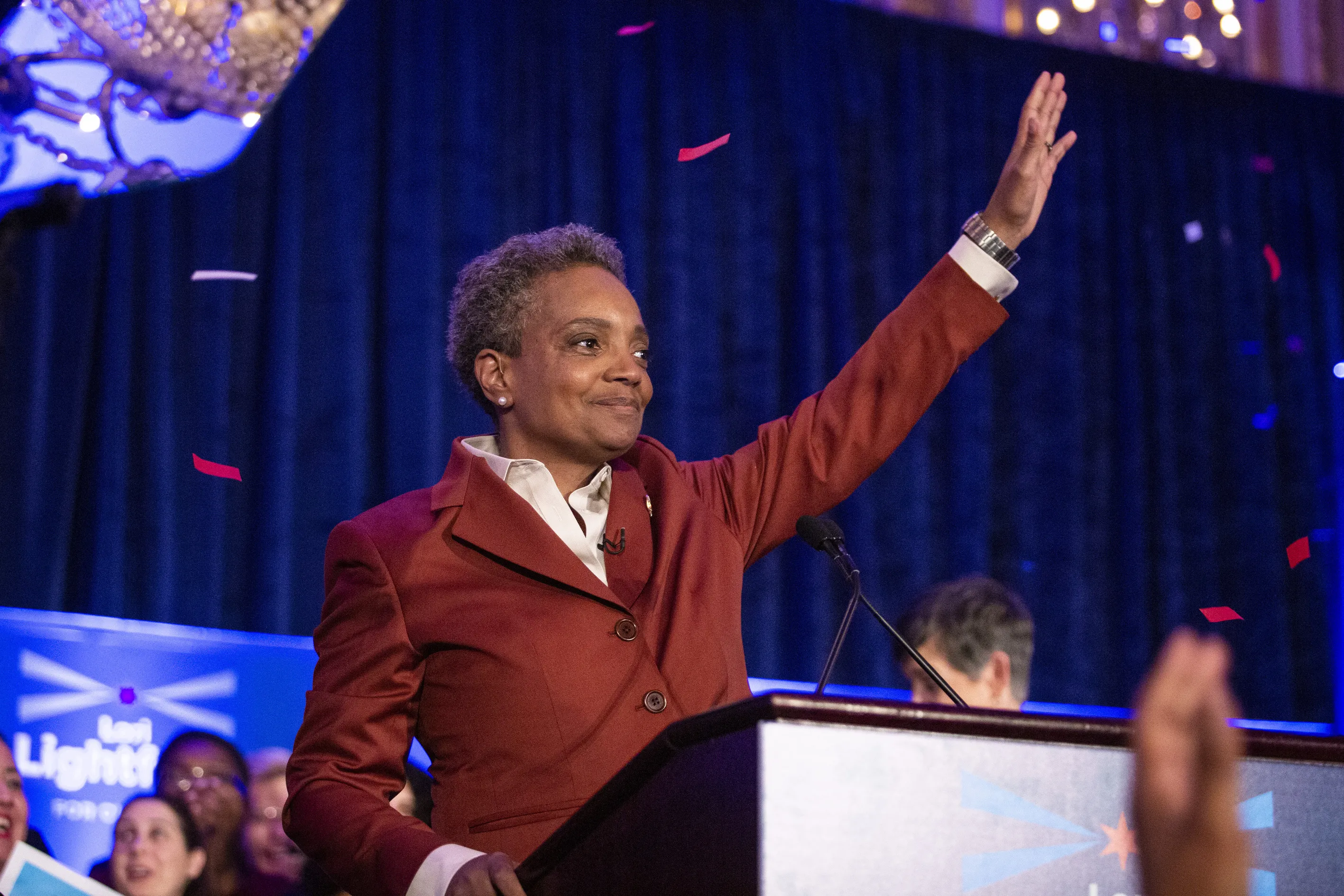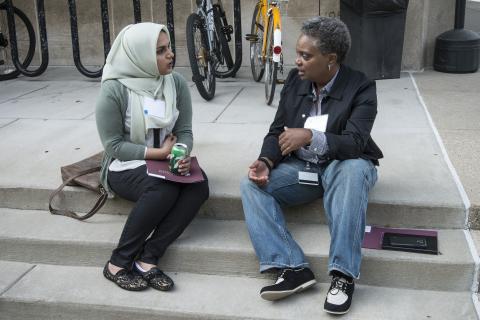Lori Lightfoot, ’89, Elected Mayor of Chicago

Lori Lightfoot, ’89, won Chicago’s mayoral runoff election Tuesday night, becoming the city’s first African-American female mayor and its first openly gay mayor.
Lightfoot will be the city’s first mayor with a degree from the University of Chicago.
“On behalf of the University of Chicago community, I congratulate Mayor-elect Lightfoot on her election, and I wish her every success in leading our city,” said University of Chicago President Robert J. Zimmer. “We are proud of her as an alumna of our Law School, and we are looking forward to working together with Mayor Lightfoot and her administration to help address some of the most important issues facing our city for the benefit of all its residents.”
Lightfoot has worked as a federal prosecutor, a senior equity partner in Mayer Brown’s Litigation and Conflict Resolution Group, president of the Chicago Police Board, chair of Chicago’s Police Accountability Task Force, chief of staff and general counsel of the Chicago Office of Emergency Management and Communications, among other positions. She also has served on the Law School’s Visiting Committee, an advisory group now called the Law School Council.
“Lori has been a tremendous mentor and advocate for our students,” said Law School Dean Thomas J. Miles, the Clifton R. Musser Professor of Law and Economics. “Lori already has a distinguished record of public leadership in the city, and it is exciting to see her become the first graduate of the Law School to serve as the mayor of Chicago. We are proud of all our graduates who give to public service, and it is particularly inspiring to have, in Lori, a graduate leading our city. ”
Lightfoot first moved to Chicago in 1986 to attend the Law School on a full scholarship. While there, Lightfoot served as the president of the Law Students Association.
“I got to know Lori when I was dean and she was the president of the Law Student Association. She was an extraordinary leader—thoughtful, determined, and principled,” said Professor Geoffrey R. Stone, who served as the Law School’s dean between 1987 and 1993.
While Lightfoot was a student, she played a key role in advocating for a law firm to be banned from on-campus interviewing after one of the firm’s interviewers made racist and sexist comments to an African-American woman student. The student notified Lightfoot, who brought the matter to the attention of then-Dean Stone. With Lightfoot’s advocacy, the Law School decided to ban the law firm from interviewing students for a year, a decision that other national law schools adopted.
“In her approach to this critical moment, Lori clearly demonstrated the leadership and judgment that have now taken her to this remarkable step in her career,” Stone said.
In 2005, Lightfoot reflected on the incident in an interview with the Law School’s alumni magazine, The Record. “What they did wasn’t illegal,” she said. “But it was immoral.”
In addition to serving in student government at the Law School, Lightfoot served as quarterback of the Law School’s intramural women’s football team. She also wrote for the now-defunct Law School student newspaper, The Phoenix. Her byline appears at the top of stories about a visit by Ruth Bader Ginsburg, then a judge on US Court of Appeals for the DC Circuit, as well as on stories about the student government and the intramural sports teams.
Lightfoot’s mayoral victory came in a runoff contest against fellow University of Chicago alumna Toni Preckwinkle, AB'69, MAT'77. Lightfoot and Preckwinkle were the top two vote-getters in a field of 14 candidates in the general election in February.
